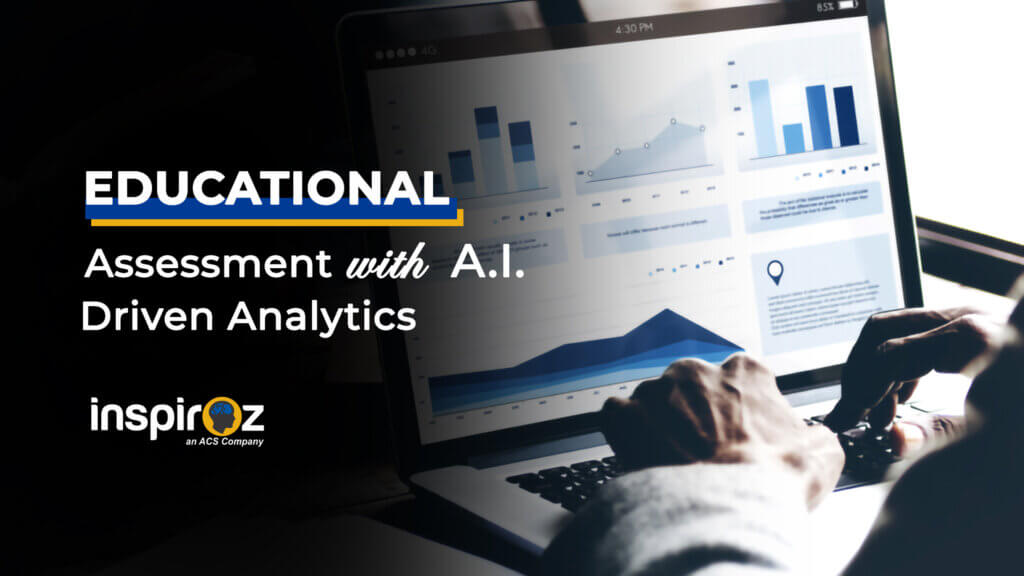Shaping the Future of Educational Assessments
1. Introduction
The assessment of student performance and learning progress is undergoing a revolutionary transformation, driven by the omset of Artificial Intelligence (AI).
AI-driven analytics are redefining the landscape of educational assessments, offering more precise, timely, and comprehensive insights into student learning.
This article delves into how AI is transforming educational assessments by enhancing accuracy, efficiency, and the overall quality of the learning experience.
2. AI in Educational Assessments: An Overview
The integration of AI in educational assessments is not just a futuristic concept but a current reality.
AI-driven tools and platforms are increasingly being used to analyze student performance, predict learning outcomes, and provide personalized feedback.
These tools leverage various AI technologies such as machine learning, natural language processing, and data analytics to process vast amounts of educational data.
3. Enhanced Accuracy and Personalization
One of the most significant advantages of AI in educational assessments is the enhanced accuracy in evaluating student performance.
Traditional assessment methods, often criticized for their one-size-fits-all approach, are being replaced by AI-driven systems that provide personalized feedback based on individual student performance.
AI algorithms can analyze student responses, identify learning patterns, and adapt assessments to suit different learning styles and abilities.
” For instance, a study by the National Center for Educational Statistics found that AI-driven adaptive testing could more accurately measure student abilities, particularly in students at the extreme ends of the performance spectrum.
This personalization leads to a more accurate understanding of each student’s strengths and weaknesses, allowing for targeted interventions and support. ”
4. Timely Insights and Predictive Analytics
AI-driven analytics provide educators with timely insights into student learning progress.
By continuously analyzing data from quizzes, assignments, and other learning activities, AI systems can identify trends and predict future performance.
This predictive capability enables educators to intervene early, helping students who are struggling and challenging those who are excelling.
" A report by McKinsey & Company highlighted the potential of AI in education, noting that predictive analytics could identify students at risk of dropping out, enabling timely intervention. This proactive approach is vital in educational settings where early detection of learning gaps can significantly impact student outcomes. "
5. Automated Grading and Feedback
AI is also improving assessment grading. Automated grading systems, powered by AI, can evaluate open-ended responses, essays, and even creative projects.
This not only reduces the workload of educators but also ensures consistency and objectivity in grading.
"Research from the Massachusetts Institute of Technology (MIT) demonstrated the effectiveness of AI in grading essays, showing that AI algorithms could match the grading quality of human instructors.
This automation allows educators to focus more on teaching and less on administrative tasks, enhancing the overall educational experience."
6. Challenges and Ethical Considerations
While AI-driven analytics offer numerous benefits, they also present challenges and ethical considerations.
Concerns around data privacy, algorithmic bias, and the digital divide are paramount.
Ensuring that AI systems are fair and transparent, and respecting student privacy is crucial in their successful implementation.
Additionally, the digital divide – the gap between those who have access to technology and those who do not – can intensify inequalities if not addressed.
7. Insights by Inspiroz
Inspiroz offers data analytics services tailored for schools. The tools include data visualizations, regular reports, and dashboards covering critical aspects like enrollment, attendance, demography, and behavioral data.
Addresses common challenges like inconsistent datasets, inefficient data integration, and lack of personalized learning.
Inspiroz ensures data accuracy, consistency, and effective integration, enabling tailored learning experiences and providing insightful reports and dashboards for operational and student performance analysis.
8. Conclusion
AI-driven analytics are reshaping the landscape of educational assessments, offering more accurate, timely, and personalized insights into student performance.
By harnessing the power of AI, educators can provide a more targeted and effective learning experience.
However, it is essential to navigate the challenges and ethical considerations carefully to ensure that the benefits of AI in education are realized for all students.
As we move forward, AI-driven analytics will undoubtedly continue to play a pivotal role in shaping the future of education.




